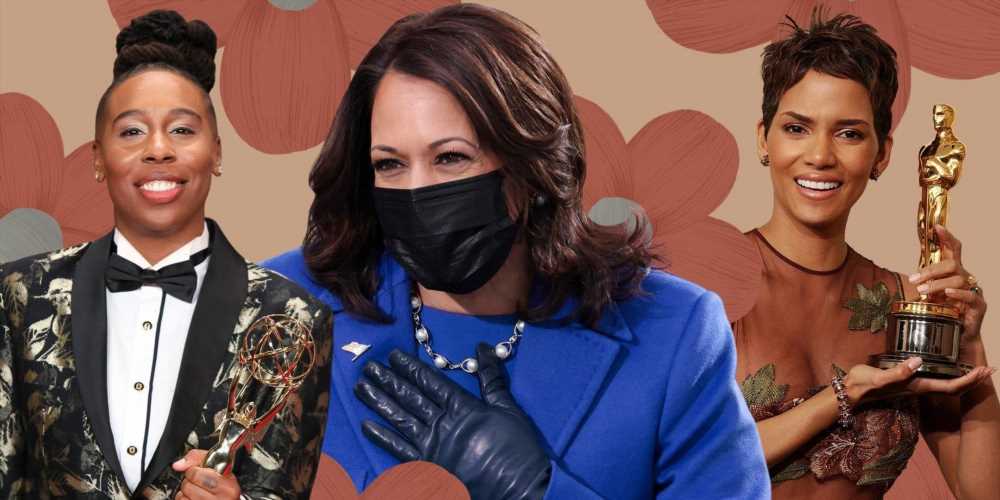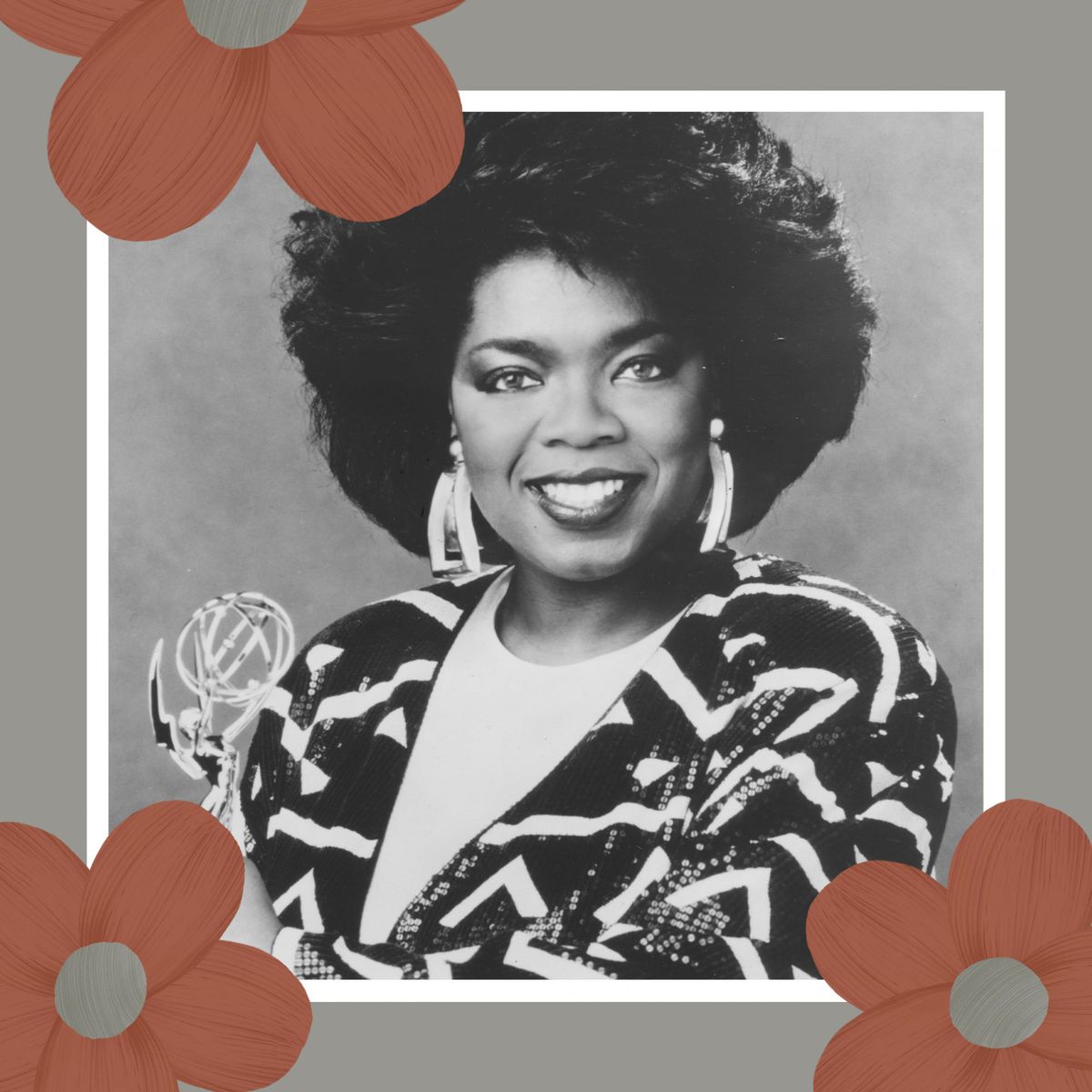
When Will Black People Get to Stop Being "The First"
08/30/2021"You know, you're the first Black friend my parents let sleep over."
It was still light outside and my fourth-grade schoolmate and I were settling into sleeping bags on her living room floor. Stephen King's Pet Sematary sat ominously on top of the TV as we rewound the Blockbuster rental. I can still recall the sounds of the VHS cassette whirring in the player. I can recall her voice at that moment, too. She sounded triumphant and proud. Her words felt like a sword knighting my lanky brown body through my insulated polyester pod, as the honorary "Good Black" title was bestowed upon me with a single sharp, uncomfortable sentence.
Existing as the "Good Black" or "First Black" became a badge of sorts that followed me for many years in white spaces. Being a token was a parlor trick, the kind of merit of white supremacy that leaves you both proud and profoundly ashamed. This thread was woven throughout my adolescence and well into adulthood, precariously holding a toxic part of my identity in place.
I naively associated white spaces with safe spaces. Being the first Black girl accepted into many of my various social groups and work environments, I was winning (or so I thought). I was conquering the white spaces I wasn't supposed to ever be able to access, as so many prominent Black women have likely felt when they've been dubbed as "the first."
Of course, with age and perspective, it became abundantly clear that this was not necessarily a win. I was perpetuating the mythology of white supremacy by convincing myself I needed the approval of white people. And once I started doing the work of acknowledging and untangling this indoctrination, I had to reckon how very solitary, vulnerable, and relentlessly difficult it is to be the first or only Black person in any position.
It also meant that anytime I endeavored to do something extraordinary, I would be automatically compared to the very few Black women who are actually in positions of power. When I started LADYGUNN magazine, for example — a publication which originated in my bedroom and has ended up on newsstands all over the world — I cannot count how many times someone would say to me, "You could be the next Oprah!"
What Oprah has accomplished seems unfathomable, and I couldn't even imagine a trajectory like hers. Her youth was riddled with tectonic ruptures that sent an adolescent Winfrey to seek refuge with her father in Nashville. Then at 19, she became the first Black female anchor for WTVF-TV, Nashville. Thirty years later, she became the first Black woman to join Forbes' "World's Richest People" list. However, what I can relate to is her drive to use the title of "the first" to bypass white gatekeepers and open up more opportunities for other Black women, while using her platform to share our stories.
For example, after a notable 2001 taping of The Oprah Winfrey Show that revolved around colorism, an audience member excitedly shared her joy with Winfrey over the fact that her kids could see a successful Black woman on TV. Winfrey responded politely, "Thank you. That's why I'm here."
My ambitions have not only led me to global newsstands but also allowed me to feature individuals, conversations, and concepts that might not otherwise have been given a platform. There have been several other Black women who have managed to rise to the top of their respective fields and who have felt a duty to not only represent Black women but create new opportunities for us.
In 2002, Halle Berry won the Academy Award for Best Actress. She was the first Black woman in history to do so, and she made it her mission to use her position in Hollywood to break through the exclusive barriers of her industry. "We have to direct, we have to write, we have to produce, we have to have studios," Berry recently shared with InStyle. "It's about realizing that we're evolving as a society, and our movies and our art that we produce has to reflect the world in which we live. The only way we do that is to allow people — men and women of color — to be in those positions to create those stories that are important to a large segment of the population."
Similar sentiments have been expressed by other successful Black women who recognize how limited the opportunities are and how committed the system is to marginalization.
In 2017, Lena Waithe won an Emmy for an episode of Masters of None. Waithe made history as the first Black woman to win for comedy writing. She did so while writing authentically about sex and Black familial relationships, undermining the standard whitewashed, cookie-cutter Hollywood narratives.
"It's not just about, 'Oh, I get to win an Emmy,'" Lena told Time in 2017. "I think it's about me breaking through a barrier that I didn't even know existed… The mission is to continue to make work that cannot be duplicated … I was just honored to be part of a very exclusive club, and my mission is to make sure I'm not in here for too long."
Waithe continued to speak out in the press, specifically about lack of access, later telling Time, "There are a lot of talented people of color, queer writers that are good and do have good scripts and don't have that access to being in writing rooms or directing routines. We still don't have a level playing field, so that is my movement."
Diversity and representation are key to smashing the patriarchy and white supremacy, and oftentimes it takes a "first" to start that same movement Waithe speaks of.
The most recent example we've seen of this is Vice President Kamala Harris, who is of Black and South Asian descent. One of the first things she did after being elected was appoint Hartina Flournoy, a Black woman, along with Rohini Kosoglu, an Indian woman, to two of the highest positions on her staff — Chief of Staff and Domestic Policy Advisor, respectively. And through her influence, together with President Joe Biden, the U.S has the most diverse cabinet in history.
Still, despite the fact that Harris has already opened doors for others who look like her, it seems as though more emphasis is being placed on the fact that she is "the first," rather than her reaching back to lift other Black women and women of color upward. In this sense, the never-ending conversation of "the first" can be utterly exhausting — especially for those of us who aren't celebrities, maybe don't have access to capital, and work in predominantly white spaces.
Her swearing-in was historic for many reasons and a huge relief after a four-year reign of terror and brush with authoritarianism. But echoing throughout media outlets was a tone akin to that of my fourth-grade friend. "Our first Black, our first Asian, our first woman …" they triumphantly declared on repeat, as though this is something to be proud of. And it is in a way — it's monumental. But sometimes, being the first is bittersweet. And sometimes, the timing of the first is merely bitter. Is no one ashamed that we just now have our first woman, our first Black woman occupying a spot in the executive branch? In 2021, should this be a point of pride? I wonder what Vice President Harris thinks each time she hears her gender and racial identity listed enthusiastically like a broken record, instead of her educational background or accomplishments as an attorney and politician. At first, I wondered if she, too, feels like the first Black girl allowed to sleep over.
But with a statement like, "While I may be the first woman in this office, I will not be the last," which Harris diplomatically proclaimed in her inauguration speech, it feels as though more doors are opening up for our brilliance and power to become normalized.
Aside from her staff appointments, only time will tell what Harris will do with this complicated position in both the long and short term. Will she advance us as a people? Or will she rest on her laurels, knowing she's made it, perhaps thinking her presence alone is enough? Regardless, it's lonely at the top as the token Black girl, and her road from here will not be any easier than her road to getting here.
We can learn from these public figures, that when we are able to enter positions of power and have the ability to hire or mentor the next or current generation of Black women and people, we all have to reach back to bring more of us up that ladder. It is essential. It is the only way — like Berry, like Waithe, like Harris, and like Winfrey — that we can bypass the pattern of exclusion white male CEOs have historically put in place and help to create equitable spaces where we can all start to thrive. That's how we move beyond having an exclusive club of firsts and into a future where we stand together.
It goes without saying that Black women do not currently hold the power in society to knock down white supremacy in an instant. But what we can do is honor our power and accolades in any space we occupy as a way to open the door for those who look like us to continue to shatter glass ceilings. Like costume designer and stylist Charlese Antoinette, who launched a database of Black designers for filmmakers and TV studios to reference, getting more of those talents onscreen. Or Nyakio Grieco who launched Thirteen Lune, an e-commerce platform for Black and brown beauty founders who create products that cater to everyone.
And with women like these as our guides, we can and will eventually reach a day when we no longer have to celebrate being the first — but rather be able to look at Black women being in positions of enormous power as par for the course.
Source: Read Full Article




